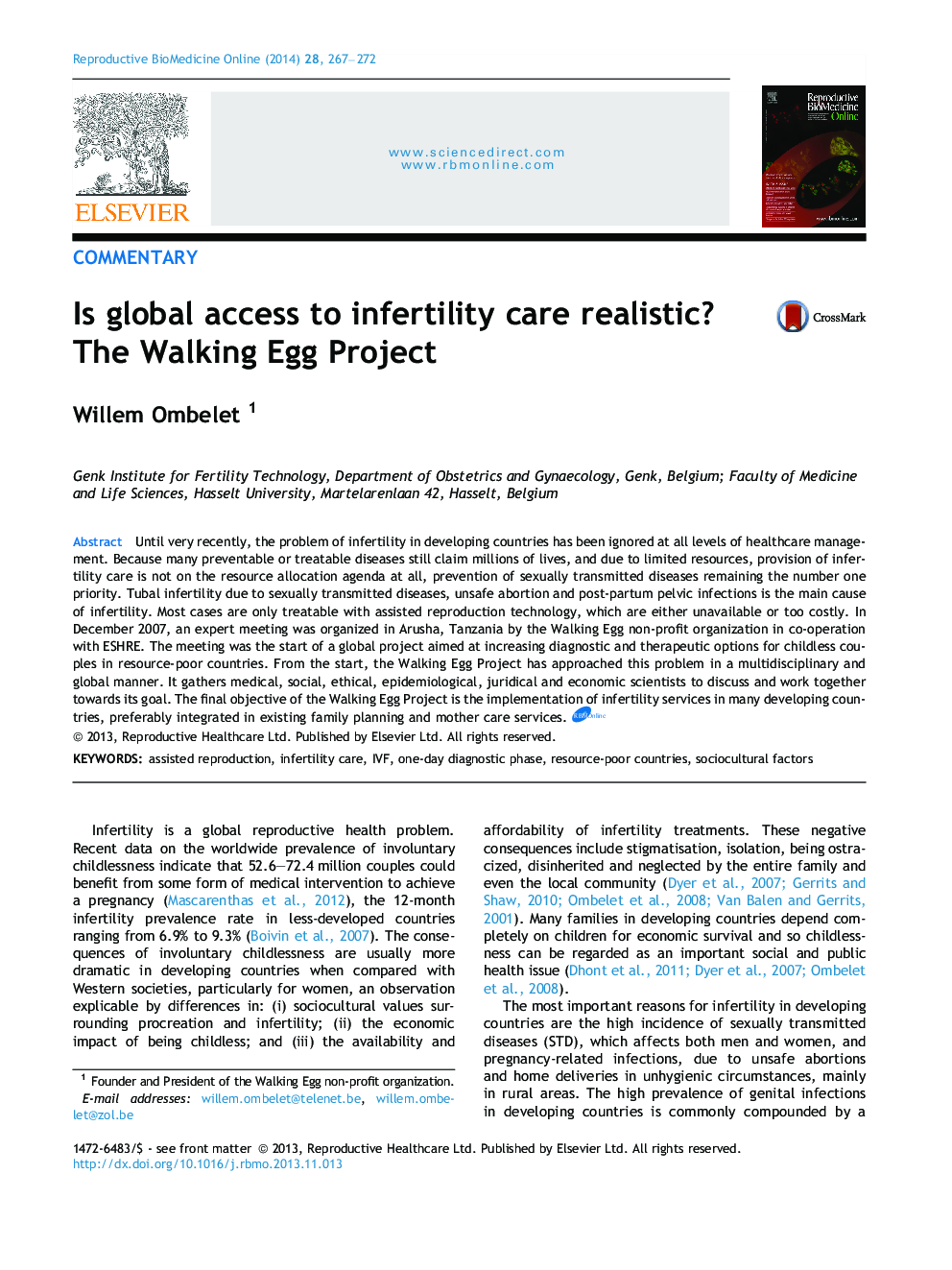| Article ID | Journal | Published Year | Pages | File Type |
|---|---|---|---|---|
| 6189061 | Reproductive BioMedicine Online | 2014 | 6 Pages |
Until very recently, the problem of infertility in developing countries has been ignored at all levels of healthcare management. Because many preventable or treatable diseases still claim millions of lives, and due to limited resources, provision of infertility care is not on the resource allocation agenda at all, prevention of sexually transmitted diseases remaining the number one priority. Tubal infertility due to sexually transmitted diseases, unsafe abortion and post-partum pelvic infections is the main cause of infertility. Most cases are only treatable with assisted reproduction technology, which are either unavailable or too costly. In December 2007, an expert meeting was organized in Arusha, Tanzania by the Walking Egg non-profit organization in co-operation with ESHRE. The meeting was the start of a global project aimed at increasing diagnostic and therapeutic options for childless couples in resource-poor countries. From the start, the Walking Egg Project has approached this problem in a multidisciplinary and global manner. It gathers medical, social, ethical, epidemiological, juridical and economic scientists to discuss and work together towards its goal. The final objective of the Walking Egg Project is the implementation of infertility services in many developing countries, preferably integrated in existing family planning and mother care services.
